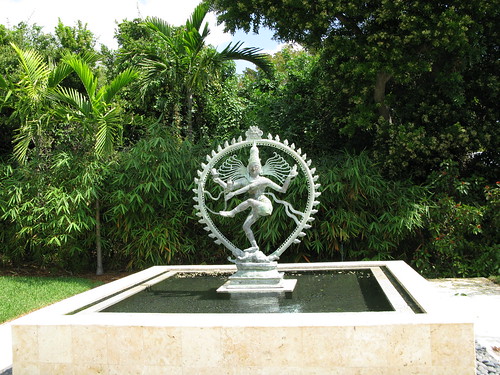Work was busy and lots of stuff to do before I leave next Tuesday!
I had a Dr. Appointment today and then got in at 5:00. Played with Chai outside for a bit and then practiced.
I got in an hour practice and did the usual (meditation and pranayama)
I need to re-watch Dharma's DVD because I believe I am doing Pranayama the way he taught us in his class, but a refresher would be nice.
So a comment on my blog asked about a home practice sequence. I pull sources from all over the web, I love how much information is out there. I try to share links and such with you people often! :)
It would be fun to sit down with some of my Yogi friends to help create a sequence together. Kind of like we start a sequence and the next person adds on another posture. That would be fun.
Just an idea.
Anyway, I've been reading a lot lately (obviously preparing for the training next week) I am reading back over some of my notes from The Heart of Yoga; Developing a personal practice.
And this really really stuck out to me so I thought I would share:
Those who search for clairty can learn the difference between right & wrong understanding. In this respect yoga is optimistic through the insightful perception of problems and confusions we move toward clairty.
Change is not a direct or indirect consequence of yoga or any other practice. We can not depend on it. What we can count on gaining from our yoga practice is a quieter mind--some how the heaviness & the jumpiness vanish.
Yet something very personal & essential has to happen for us at the right time, and it has to touch us so deeply that we suddenly really want to pause, consider, and change our course of action. After that we simply go forward.
The qualit of our action begins to change. The new positive samskara becomes stronger & our mind remais clear.
In the end clairty can prevail in the mind, but experiential understanding occurs only through the pursa (the part of us capable of real seeing)
Our goal is freedom from duhka (pain), from distress & suffering. To this end we must recognize duhka, we must know that it arises out of the incorrect understanding of avidya (incorrect knowledge) and we must know that we can avoid it.
We can understand the practice of yoga--a process of examining our habitual attitudes and behaviors and their consequences.
2 weeks ago










1 comment:
Thanks! Great passage. That idea of the experiential is so important in anurara as well--you don't even necessarily need to escape suffering, you make use of it.
Post a Comment